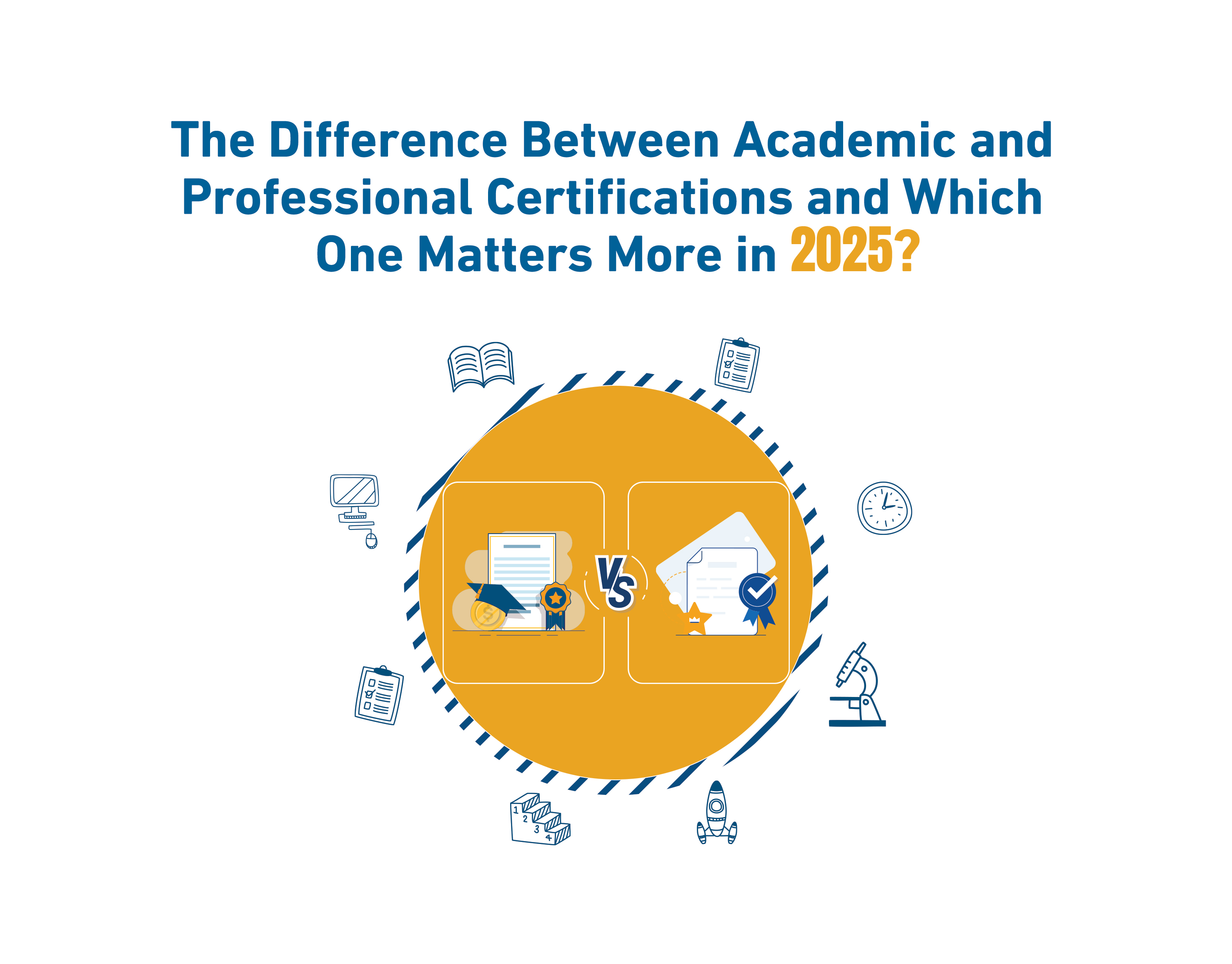
The Difference Between Academic and Professional Certifications… and Which One Matters More in 2025?
The Difference Between Academic and Professional Certifications… and Which One Matters More in 2025?
In today’s job market, we often hear about professional and academic certifications. But the question that confuses many is: which one is more important and impactful for a career path, especially with how the market is evolving in 2025? In this article, we clarify the difference between the two types, and the significance of each in professional and practical life.
First: Academic Certifications
Academic certifications are qualifications obtained through official universities and colleges, such as Bachelor's, Master's, and Doctorate degrees. These certifications aim to provide broad theoretical knowledge in a specific field, with a heavy focus on academic study.
Advantages of Academic Certifications:
They provide a strong knowledge foundation in a specialized field.
They open opportunities for postgraduate studies and work in academia.
They are required for some governmental or academic positions.
They offer opportunities to delve into scientific research.
Second: Professional Certifications
Professional certifications are accredited and focused on teaching specific practical skills directly needed in the job market. Examples include the Project Management Professional (PMP), Professional in Human Resources (PHR), and technical certificates like Microsoft and Cisco certifications.
Advantages of Professional Certifications:
Entire focus on practical and professional application.
Highly demanded in private and multinational companies.
Help in career advancement and clear salary increases.
Receive great attention in specialized fields such as management and technology.
Comparison Between Academic and Professional Certifications
According to global reports and research, such as the LinkedIn Learning Report of 2024, the market is clearly leaning towards preferring professionals with practical certifications, due to the need for specific, accurate skills that can be applied directly in the workplace.
According to Forbes, the demand for professional certifications is expected to grow by up to 40% in the coming years compared to traditional academic degrees, as employers look for quick and effective results.
And according to a 2024 survey by Coursera, 85% of business owners confirmed they prefer to hire individuals with specialized professional certifications that allow them to start working quickly and efficiently.
In Saudi Arabia, certifications accredited by bodies such as the Technical and Vocational Training Corporation significantly increase your employment chances by more than 80%.
So, which is more important in 2025?
The answer to this question greatly depends on your career goal. If you are aiming for an academic or official government job, academic degrees are still essential. But in the private sector—especially in modern fields like technology, management, digital marketing, and project management—professional certifications are more important than ever.
In 2025 and beyond, the shift toward professional certifications is expected to grow due to several reasons:
Rapid technological advancements and the constant need to update skills.
Companies increasingly relying on fast, practical results.
A greater focus on skills rather than traditional academic degrees.
Conclusion and Recommendations:
To ensure your professional success in the coming years, it’s very important to combine academic education with professional certifications. You can start with an academic degree as a theoretical foundation, then reinforce it with specific, practical professional certifications that distinguish you in the job market.
Trusted Sources and References:
By following this strategy, you guarantee yourself a successful career in 2025 and beyond.


Comments (0)